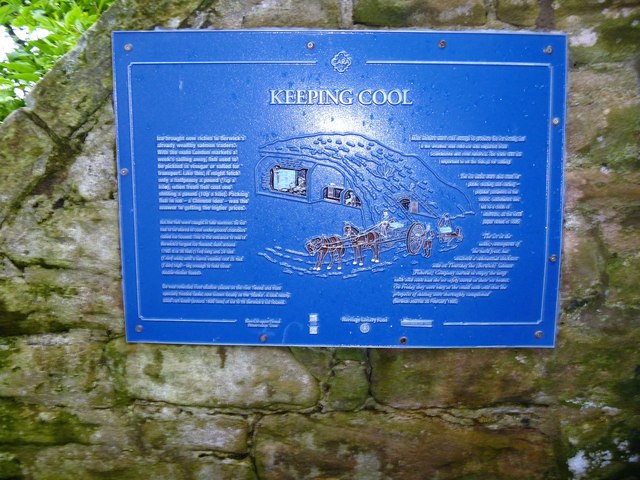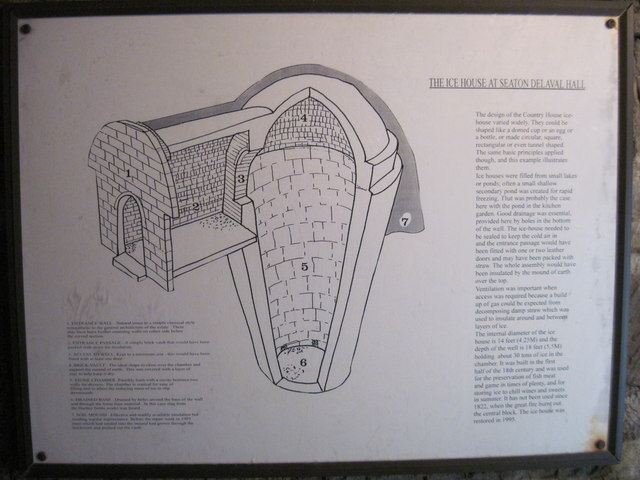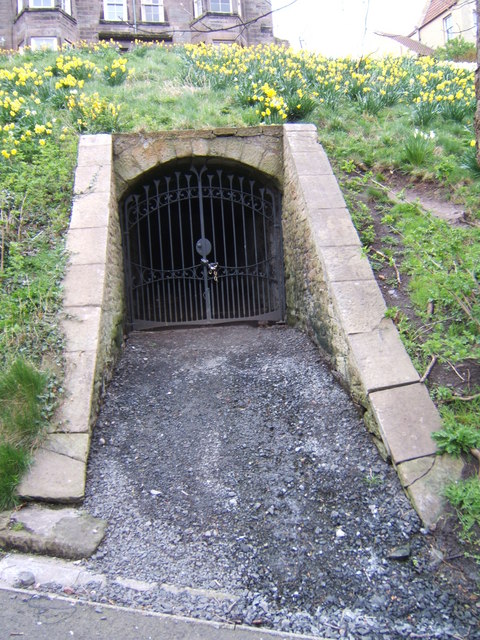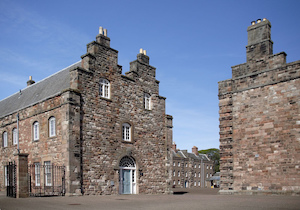Ice House [2]

-
Description
"The plaque explains how the ice house (see [[5025631]]) was used. The plaque reads: Keeping cool Ice brought new riches to Berwick’s already wealthy salmon traders. With the main London markets a week’s sailing away, fish used to be pickled in vinegar or salted for transport. Like this, it might fetch only a halfpenny a pound (½p a kilo), when fresh fish cost one shilling a pound (10p a kilo). Packing fish in ice – a Chinese idea – was the answer to getting the higher prices. But the fish were caught in late summer. So ice had to be stored in cool underground chambers called ice houses. This is the entrance to one of Berwick’s largest ice houses, built around 1790. It is 36 feet (11m) long and 24 feet (7.4m) wide, with a barrel vaulted roof 25 feet (7.6m) high – big enough to hold three double-decker buses. Ice was collected from shallow places on the River Tweed and from specially flooded tanks, now known locally as the ‘Stanks’. It took nearly 8000 cart loads (around 1600 tons) of ice to fill Berwick’s ice houses. Most winters were cold enough to produce the ice locally, but if the weather was mild ice was imported from Scandinavia and even America. The trade was too important to let the fish go for salting! The ice tanks were also used for public skating and curling, popular pastimes in the 1800s. Sometimes this led to a clash of interests, as the local paper noted in 1885. ‘The ice in the tanks, consequent of the hard frost, has attained a substantial thickness and on Thursday the [Berwick] Salmon [Fisheries] Company started to empty the large tank and soon had the ice safely stored in their ice houses. On Friday they were busy at the small tank and thus the prospects for skating were thoroughly vanquished’. (Berwick Journal 26 February 1885) " Photo by Michael Dibb, 2016. -
Owner
Michael Dibb -
Source
Geograph (Geograph) -
License
What does this mean? Creative Commons License
-
Further information
Link: http://www.geograph.org.uk/photo/5026935
Resource type: Image
Added by: Simon Cotterill
Last modified: 8 years, 8 months ago
Viewed: 1196 times
Picture Taken: 2016-06-11 -
Co-Curate tags









